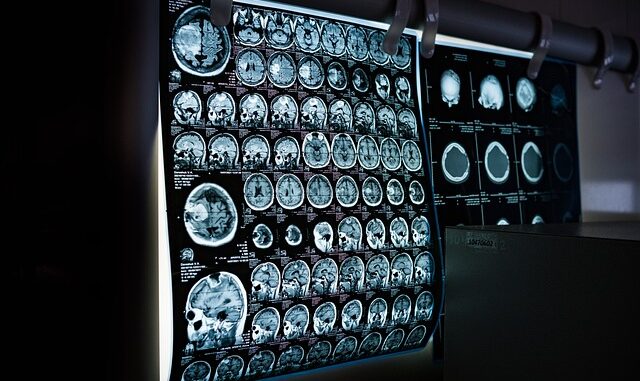
Summary
This article explores the increasing role of AI in healthcare, focusing on UnitedHealth Group’s extensive use of AI applications. It examines the benefits and challenges of AI in healthcare, including concerns about overreliance and potential biases. The article also discusses the importance of responsible AI development and implementation.
** Main Story**
AI’s changing healthcare, and it’s happening fast. We’re talking about better diagnostics, more effective treatments, and ultimately, improved patient care. UnitedHealth Group, a major player in the field, has really jumped on board, boasting over 1,000 AI applications already in production as of May 2025. That’s impressive, right? So, let’s dive into what UnitedHealth is doing, some broader AI trends in healthcare, and what opportunities and challenges we can expect.
Inside UnitedHealth’s AI Playbook
UnitedHealth is using AI pretty much everywhere you can imagine: within their insurance arm, their health delivery systems, and even their pharmacy divisions. We’re seeing AI transcribe conversations between doctors and patients, summarize key data points, handle claims processing, and even power customer-facing chatbots. I mean, who hasn’t dealt with a chatbot at this point? What’s even more interesting is that they’re using AI to help with software development too. Apparently, around 20,000 of their engineers are leveraging AI tools, including generative AI, to build and improve their systems.
The goal here? It’s to simplify those administrative headaches, create better data platforms, and provide doctors with the medical and clinical insights they need to make informed decisions. They’re also talking a big game about responsible AI development through their “Responsible Use of AI (RUAI) Program.” It’s all about minimizing risks and ensuring accuracy, fairness, security, privacy, ethics, and transparency. You know, all the important stuff.
The Rise of Smart AI
Now, zooming out a bit, the healthcare industry as a whole is seeing the rise of what we call agentic AI. This isn’t just about generating content, like you’d see with some generative AI tools. No, agentic AI is about AI that can solve problems on its own. It can analyze situations, come up with plans, and get things done with minimal human input. Kind of like a really efficient intern, but…AI.
Think about it: agentic AI can personalize customer service, make administrative tasks a breeze, and even help patients directly. Imagine AI agents constantly monitoring patient data, tweaking treatment plans based on the latest test results, and giving doctors real-time feedback. Actually, a friend of mine who works at a different healthcare provider told me they’re already piloting something similar. Wild, isn’t it?
Over-Reliance: A Slippery Slope?
Okay, but here’s the thing: as much as AI promises to revolutionize healthcare, we’ve got to be careful about becoming too reliant on it. Doctors and nurses might start depending too much on AI systems, and that could, potentially, lead to a decline in critical thinking skills and clinical judgment.
And what happens if those AI systems fail? What if they’re temporarily unavailable? That’s where the balance comes in. We need to combine AI with human expertise. Doctors need to understand why an AI is recommending a particular course of action. And they should see these tools as helpers, not replacements.
Ethics and the Patient Perspective
There are also some pretty serious ethical questions around data privacy, algorithmic bias, and the risk of AI perpetuating existing healthcare disparities. If an AI is trained on biased data, it’s going to produce biased results. It’s as simple as that.
Plus, a lot of patients are still wary of AI. They like having a real person to talk to. They’re skeptical of the promises. That’s why transparency and education are so important. We need to show people the benefits of AI and explain how it works. Otherwise, it’s going to be an uphill battle.
Looking Ahead
Even with these challenges, I think the future of AI in healthcare is bright. I mean, AI can improve diagnostics, predict disease outbreaks, personalize treatments, and streamline administrative tasks. That’s huge!
But we need to develop and use AI responsibly. We need to address ethical concerns, be transparent about how these systems work, and encourage collaboration between humans and AI. That’s the key: harnessing the power of AI while minimizing its risks, and creating a future where technology and healthcare work together to improve people’s lives. And, you know, maybe finally get rid of those endless phone calls with insurance companies…a guy can dream.


The discussion around potential over-reliance on AI in healthcare is critical. How can we best establish clear protocols and training to ensure clinicians maintain their critical thinking skills while effectively utilizing AI tools?
Great point! Establishing clear protocols and training is crucial. Perhaps a blended learning approach, incorporating both AI tool training and critical thinking exercises based on real-world scenarios, could help clinicians maintain those essential skills. What specific training methods do you think would be most effective?
Editor: MedTechNews.Uk
Thank you to our Sponsor Esdebe
Given UnitedHealth Group’s extensive AI deployment, how are they measuring the actual impact on patient outcomes and satisfaction beyond administrative efficiencies? Is there data available on how AI-driven decisions are being audited for fairness and accuracy across diverse patient populations?